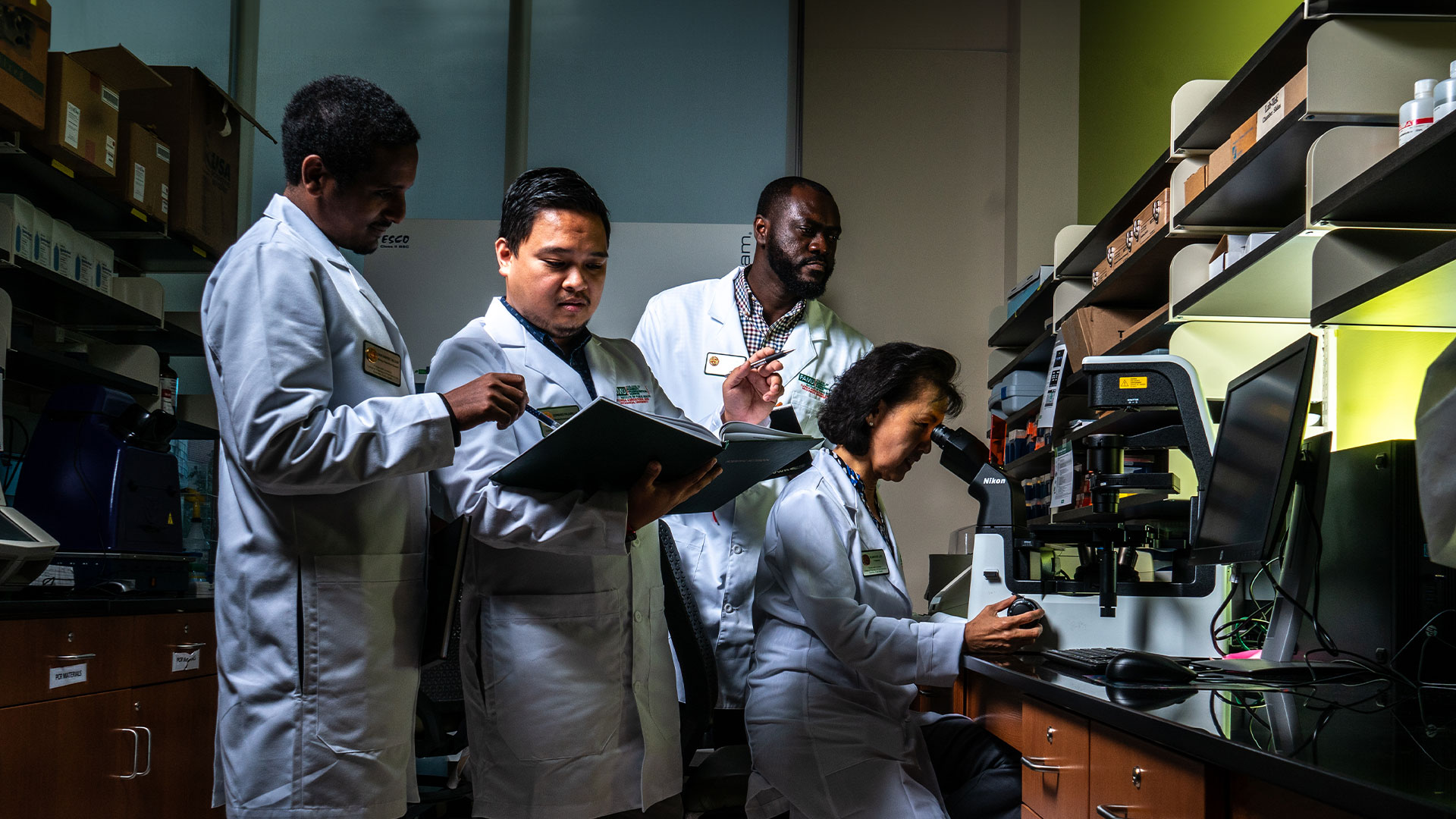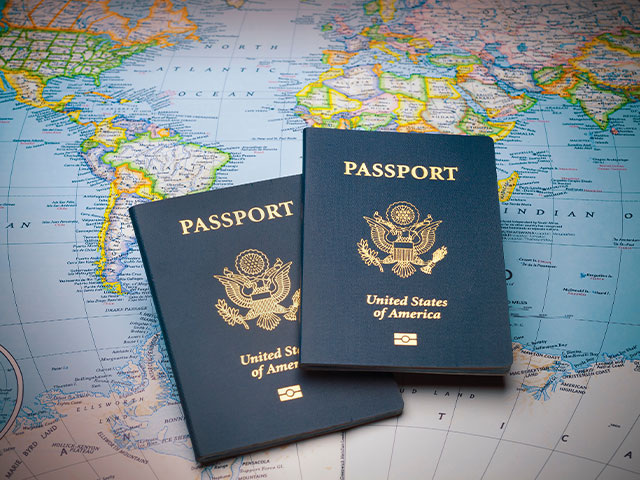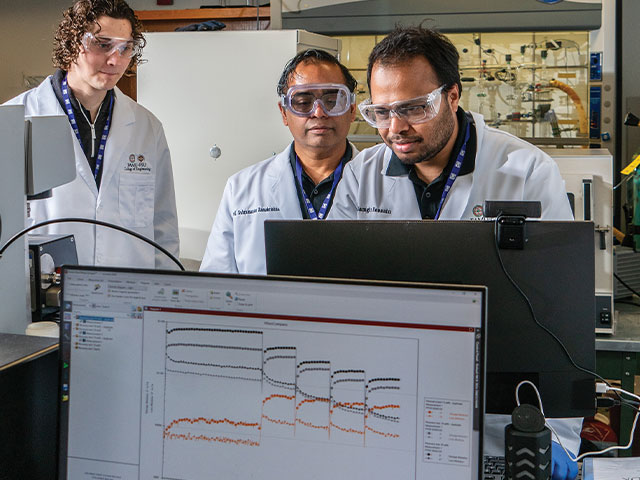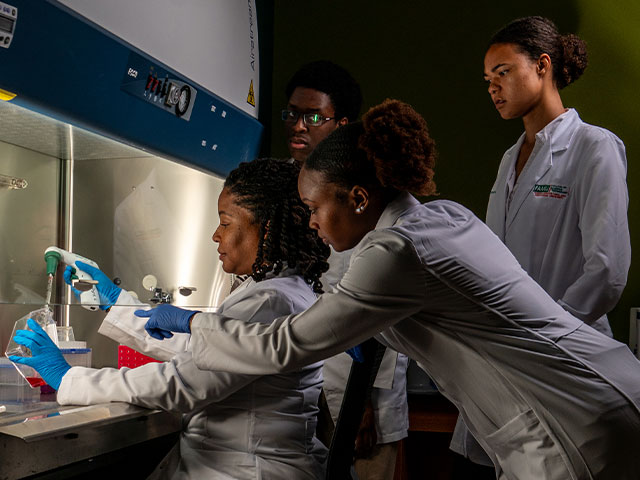Office of Research Compliance

The Research Compliance Office (RCO) oversees and manages FAMU's Compliance Panels, including the Institutional Review Board (IRB), Institutional Animal Care and Use Committee (IACUC), and Institutional Biosafety Committee (IBC).
The RCO ensures adherence to relevant policies, accreditation standards, and external regulations. Our office ensures that the University complies with federal, state, and local regulations related to research.
Requires public disclosure of foreign gifts, due diligence in monitoring grants and vendors with certain foreign connections, and thorough scrutiny of certain applicants for research and research support positions, as well as foreign travel and activities of employees
Researchers and other project personnel, regardless of title or position, who are responsible for any part of the conduct, design, or reporting of research funded by the PHS, are required by federal regulations to submit annual FCOI disclosures, report reimbursed or sponsored travel, complete FCOI training, and report any significant FCOI for review no later than at the time of application for federal funds.
Certain federal funding agencies have adopted requirements for training on the responsible conduct of research for individuals supported by or participating in projects funded by those agencies.
Supports FAMU employees, students, and departmental units in complying with U.S. federal export control laws and regulations.
MEET OUR TEAM
| Name | Phone | |
|---|---|---|
| Tanise L. Jackson, DVM, DACLAM, CPIA Director, Research Compliance |
tanise.jackson@famu.edu | (850) 599-3214 |
| Sherry A. Kemp, BBA Administrative Coordinator |
sherry.kemp@famu.edu | (850) 412-5246 |
| David Stacey, RALAT Senior Laboratory Animal Technician |
david.stacey@famu.edu | (850) 412-3381 |
| Kallie M. Donaldson, MBA, MHA Manager for Foreign Influence |
kallie.donaldson@famu.edu | (850) 412-7498 |
| Vivian T. Pope, BS, M. Ed Export Control Specialist |
(850) 412-7936 |
Compliance Committees
Institutional Review Board (IRB)
The FAMU IRB will apply the policies and guidance in this guidebook for all research involving human subjects that is conducted at FAMU and that is sponsored by this institution, conducted by or under the direction of any employee or agent of this institution in connection with his or her institutional responsibilities, conducted by or under the direction of any employee or agent of this institution using any property or facility of this institution, or involves the use of this institution’s non-public information to identify or contact human research subjects or prospective subjects, regardless of sponsorship. Research is defined in the Federal regulations as “systematic investigation, including research development, testing and evaluation, designed to develop or contribute to generalizable knowledge.” (45 CFR 46.102(d))
The Mission of the FAMU Institutional Review Board is to protect the welfare of human
subject participants by compliance with the federal regulations governing the protection
of human subjects, and facilitating the research efforts of FAMU faculty, students
and staff. The Department of Health & Human Services (HHS) and Office for Human Research
Protections (OHRP) oversees the operation of the IRB, and the Food and Drug Administration
(FDA) enforces regulations for the use of experimental drugs and devices. The IRB
is a committee composed of scientists and laypersons who review all proposed FAMU
human subjects research to ensure that the safety and welfare of subjects are protected.
All human subject research requires review and approval by an IRB prior to subject
recruitment and data collection, and prior to the use of extant data or private information.
The FAMU IRB members have the responsibility for reviewing all research involving
human subjects conducted by FAMU faculty, students, or staff, regardless of the source
of funding.
Research Using Human Subjects
The Florida A&M University is committed to the ethical principles for the protection
of human subjects in research as set forth in the Belmont Report of the National Commission
for the Protection of Human Subjects of Biomedical and Behavioral Research (1979)
The ethical principles are:
- Respect for persons - which includes the requirement of a voluntary informed consent process
- Beneficence – which entails an obligation to protect persons from harm by minimizing risks and maximizing benefits
- Justice – which requires that selection of subjects be fair and equitable and that particular care be taken when working with populations (i.e. children, decisionally impaired) whose status puts them in a vulnerable position.
The policies and procedures relating to human subject’s research contained in this manual, comprise the basic minimum procedures that the Florida A&M University (FAMU) Institutional Review Board (IRB) uses in its review processes. These guidelines are written in accordance with the Department of Health and Human Services regulations governing research involving human subjects at 45 CFR 46 and follow the principles of the 1979 Belmont Report, which specifies the ethical principles for the protection of human subjects (See Appendix D for the Belmont Report and Appendix E for 45 CFR 46). Both the membership of the IRB and any prospective researchers who intend to use human subjects in their research projects are reminded that this document establishes the basic minimum of policies and procedures and does not include every possibility for the variation in research protocols involving human subjects.
The purpose of this guidebook is twofold: to assist the IRB in reviewing research involving human subjects and to assist and provide guidance to researchers planning to conduct research involving human subjects. The review of human subject’s research at FAMU is a collaborative process intended to result in mutually acceptable research procedures that protect the rights and welfare of research participants while aiding investigators in accomplishing their scientific objectives. Every effort is made to adopt creative administrative and other means to reduce administrative burdens and maximize attention to the most important ethical issues. To this end, the IRB tries to be as flexible as possible and reviews each project as a separate case rather than simply imposing rigid requirements, and every attempt is made to consider all factors in determining the outcome of the review. The IRB encourages consultation at all stages of the research process. All IRB applications must be uploaded to the IRBNet system at www.IRBNet.org
Effective November 8, 2014, Florida A&M University Institutional Review Board (IRB) will only accept new submissions electronically through IRBNet. The next step is to utilize IRBNet for IRB protocol amendments and extensions and we anticipate requiring use of IRBNet for such activities by December 2, 2014 (see Guide for Submitting Amendments and Extensions for Old Projects in IRBNet)
|
Name |
|
|
Angela Thornton, Pharm.D., ACUE |
angela.thornton@famu.edu |
|
Perry Brown, Dr. PH |
clyde.brown@famu.edu |
|
Hassiem Kambui, Ph.D., CCMHC, LMHC, NCC, ACS |
hassiem.kambui@famu.edu |
|
Debora Oliveira Ph.D., OTR/L |
debora.oliveira@famu.edu |
|
Mr. Patrick Kennedy |
fingerstyle12@gmail.com |
|
Gloria Spradley-Brown, M.Ed. |
gloria.spradleybrown@famu.edu |
|
Tanise L. Jackson, DVM, DACLAM, CPIA |
tanise.jackson@famu.edu |
Charles Weatherford, Ph.D.
Vice President for Research
Florida A&M University
charles.weatherford@famu.edu
The Institutional Review Board meets the third Thursday of each month. Below is a listing of the application deadline date as well as the IRB Board meeting date.
Meeting Dates and Deadlines All Applications are due by 5:00 p.m. of the deadline date.
| Application Deadline | Meeting Date |
|---|---|
|
January 2, 2025 |
January 16, 2025 |
|
February 6, 2025 |
February 20, 2025 |
|
March 6, 2025 |
March 20, 2025 |
|
April 3, 2025 |
April 17, 2025 |
|
May 1, 2025 |
May 15, 2025 |
|
June 5, 2025 |
June 19, 2025 |
|
July 3, 2025 |
July 17, 2025 |
|
August 7, 2025 |
August 21, 2025 |
|
September 4, 2025 |
September 18, 2025 |
|
October 2, 2025 |
October 16, 2025 |
|
November 6, 2025 |
November 20, 2025 |
|
December 4, 2025 |
December 18, 2025 |
|
January 8, 2025 |
January 22, 2026 |
Institutional Biosafety Committee (IBC)
The Institutional BioSafety Committee (IBC) is charged with the responsibility for review, approval, and surveillance of all research protocols at Florida A&M University involving the use of biohazards including recombinant DNA, agents infectious to humans, animals or plants, and other genetically altered organisms and agents. All research at the University involving biohazards, regardless of its source of financial support, must be approved by the IBC and must conform to IBC policies and principles.
The Vice President for Research has the responsibility for enforcing IBC decisions and recommendations based on federal and institutional policies and procedures. The IBC membership is comprised of faculty members selected that they collectively have experience and expertise in recombinant DNA technology, biological safety, and physical containment; and at least one community member who represents the interest of the surrounding community. Membership reflects basic federal requirements for expertise and advocacy; additional members are added as necessary or appropriate. All IBC applications must be uploaded to the IRBNet system at www.IRBNet.org
|
Name |
|
|
Hernan A Flores-Rozas, Ph.D. |
hernan.floresroazas@famu.edu |
|
Dr. Ramesh Badisa |
ramesh.badisa@famu.edu |
|
Dr. Caroline O Odewumi |
caroline.odewumi@famu.edu |
|
Derek Dupont |
derekdupont@gmail.com |
|
Dr. Robert J. Tomko |
robert.tomko@med.fsu.edu |
|
Dr. Ramesh Katam |
ramesh.katam@famu.edu |
|
Tanise L. Jackson, DVM, DACLAM, CPIA |
tanise.jackson@famu.edu |
Charles Weatherford, Ph.D.
Vice President for Research
Florida A&M University
charles.weatherford@famu.edu
The Institutional Biosafety Committee meets the third Wednesday of each month. Below is a listing of the application deadline date as well as the IBC Board meeting date.
All Applications are due by 5:00 p.m. of the deadline date.
| Application Deadline | Meeting Date |
|---|---|
|
March 5, 2025 |
March 19, 2025 |
|
June 4, 2025 |
June 25, 2025 |
|
September 3, 2025 |
September 17, 2025 |
|
December 3, 2025 |
December 17, 2025 |
Institutional Animal Care and Use Committee (IACUC)
The Institutional Animal Care and Use Committee (IACUC) reviews all projects involving animals to ensure that they are justified by their benefits and minimize any animal pain or suffering that might occur. This includes research and teaching at Florida A&M University. The IACUC regularly inspects all projects using animals and all projects housing animals along with the University's Animal Care Facility (ACF) staff. The ACF provides for and disseminates information on the care, health and well-being of animals at the University. The Institutional Animal Care and Use Committee (IACUC) is comprised of 10 members representing University faculty, staff, students, and the local community. The IACUC meets once a month to review animal research and related issues.
The Institutional Animal Care and Use Committee (IACUC) reviews all projects involving animals to ensure that they are justified by their benefits and minimize any animal pain or suffering that might occur. This includes research and teaching at Florida A&M University.
The IACUC regularly inspects all projects using animals and all projects housing animals along with the University's Animal Care Facility (ACF) staff. The ACF provides for and disseminates information on the care, health and well-being of animals at the University.
The Institutional Animal Care and Use Committee (IACUC) is comprised of 10 members representing University faculty, staff, students, and the local community.
The IACUC meets once a month to review animal research and related issues.
|
Name |
|
|
Syreeta Tilghman, Ph.D. |
|
|
Glen Wright, DVM |
|
|
David Stacey |
|
|
Brooke Gentry |
|
|
Julie-Anne Valliant |
|
|
Victor DeLaire |
|
|
Adrian T. McCollum, Ph.D. |
|
|
Izzy Egloff |
|
|
Erick Akins, Ph.D. |
|
|
Royrick Barge |
|
|
Tanise L. Jackson, DVM, DACLAM, CPIA |
Charles Weatherford, Ph.D.
Vice President for Research
Florida A&M University
charles.weatherford@famu.edu
All Applications are due by 5:00 p.m. of the deadline date.
| Application Deadline | Meeting Date |
|---|---|
|
December 19, 2024 |
January 9, 2025 |
|
January 16, 2025 |
February 6, 2025 |
|
February 19, 2025 |
March 6, 2025 |
|
March 20, 2025 |
April 3, 2025 |
|
April 17, 2025 |
May 7, 2025 |
|
May 15, 2025 |
June 5, 2025 |
|
June 9, 2025 |
July 3, 2025 |
|
July 17, 2025 |
August 7, 2025 |
|
August 21, 2025 |
September 4, 2025 |
|
September 18, 2025 |
October 2, 2025 |
|
October 16, 2025 |
November 6, 2025 |
|
November 20, 2025 |
December 4, 2025 |
|
December 18, 2025 |
January 8, 2026 |








